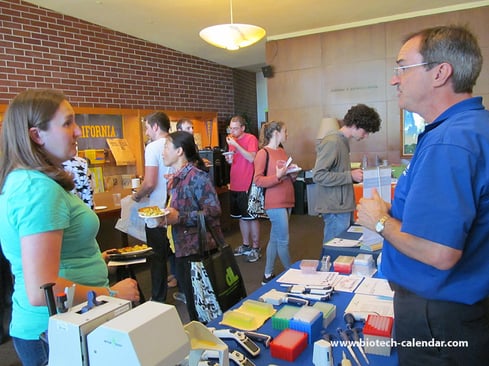The Human Computation Institute, in collaboration with UC Berkeley and other institutions, has developed a new game called Stall Catchers that will allow the public to directly contribute to research for a cure to Alzheimer's disease. In the online game, participants will view movies of real blood vessels in mouse brains and search for any clogged capillaries, or stalls. Capillary stalls, where blood is no longer flowing, are thought to be a key cause of Alzheimer's disease.
The "citizen science" approach for the game was developed by physicist Andrew Westphal, a senior fellow at the UC Berkeley Space Sciences Laboratory. It was first used in Stardust@home, a project in which over 30,000 amateur scientists carried out over 100 million searches to identify interstellar dust in samples collected by the NASA Stardust comet sampling mission. The project led to the discovery of seven particles of likely interstellar origin, and Westphal is hopeful that this approach will be similarly successful in aiding research for a cure for Alzheimer's disease.
“Stall Catchers will not only be a breakthrough in how we do Alzheimer’s research, but it will also empower anyone to directly contribute to fighting a disease that affects them or their loved ones,” Michelucci said.
Searching for capillary stalls is a time-consuming task that can could possibly take up to a year to answer in the lab; the Stall Catchers game aims to accelerate this data analysis. “Today, we have a handful of lab experts putting their eyes on the research data,” said Pietro Michelucci, principal investigator. “If we can enlist thousands of people to do that same analysis by playing an online game, then we have created a huge force multiplier in our fight against this dreadful disease.”
Stall Catchers will be free to play, will be open to everyone, and can be played on desktops, tablets, and smart phones. The game has already been tested by more than 100 people and has also been demonstrated at science events such USA Science and Engineering Festival and European Citizen Science Conference 2016.
 (Comparison of a healthy brain and that of an Alzheimer's disease patient. Image courtesy of Wikimedia Commons.)
(Comparison of a healthy brain and that of an Alzheimer's disease patient. Image courtesy of Wikimedia Commons.)
Other UC Berkeley researchers have also been working towards helping patients with Alzheimer's disease. Earlier this year, a study led by scientists at UC Berkeley showed for the first time that "PET scans can track the progressive stages of Alzheimer’s disease in cognitively normal adults, a key advance in the early diagnosis and staging of the neurodegenerative disorder." Dr. William Jagust, principal investigator of the study, recently even received $1.8M in research funding for his team's work.
UC Berkeley is consistently rated among the top institutions in the world for the quality and breadth of its research enterprise, for the scholarly distinction of its faculty, for the excellence of its Ph.D. programs, and for the amount of funding received in support of its research programs.
The 20th Annual BioResearch Product Faire™ event at the University of California, Berkeley will be held on June 7, 2017. Life science professionals are invited to attend the annual on campus trade fair for free. Click the button below for additional information or to pre-register.
Biotechnology Calendar has been producing highly reputable life science trade shows at more than 50 research universities across the U.S. for over twenty years. These shows bring top lab and chemical supply companies together with hundreds of researchers to help them find the best new lab products. To learn more about participating at this upcoming Berkeley event, visit the link below:




